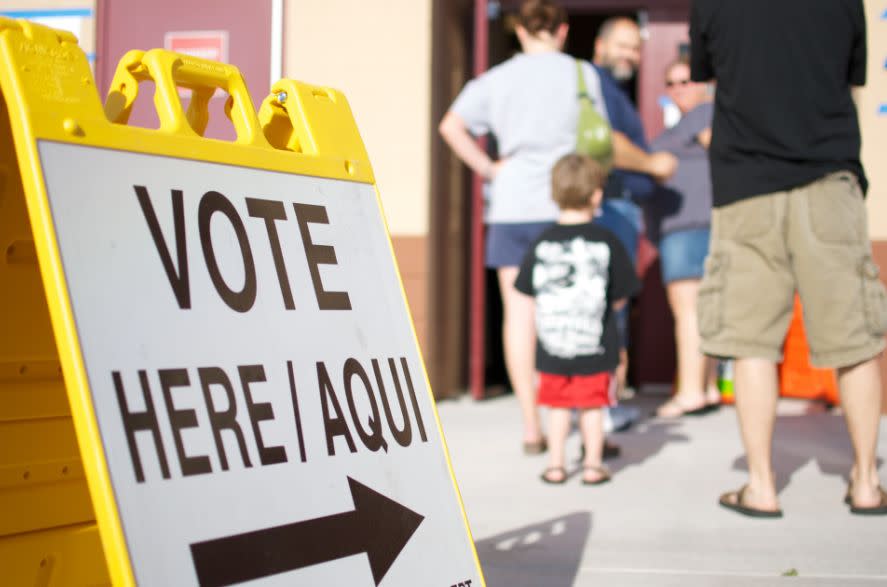A federal trial on NC’s voter ID law winds down with its future at stake

Image: AdobeStock
North Carolina’s 2018 voter ID law represents another chapter in the state’s long history of discriminatory laws meant to deter Black voters that includes poll taxes and literacy tests, a lawyer for the NAACP told a federal judge Monday.
While acknowledging that history, a lawyer for Republican legislators said that the photo ID law is not part of that legacy. Experiences with last year’s municipal elections and this year’s primary, shows a “vanishingly small number of people who can’t vote because of photo ID,” the Republicans’ lawyer said.
The long-delayed federal trial over the law requiring voters to show photo ID is coming to a close after about a week of testimony at the federal courthouse in Winston-Salem.
The NAACP and local chapters sued over the law soon after it passed in 2018, contending that it discriminated against Black and Latino voters in violation of the federal Voting Rights Act and the U.S. Constitution.
The state Board of Elections and Republican legislative leaders are defending the law. Their lawyers argued that since it was put into practice last year, the law has not resulted in the discriminatory impacts challengers claimed it would.
Voter ID requirements in North Carolina have seen many twists and turns since the legislature first enacted an ID law in 2013 as part of an extensive package of limits on voting. A panel of federal judges struck down that law in 2016, writing it targeted Black voters with almost “surgical precision.” The 2013 voter ID law was used in one primary before the federal judges threw it out.
Republican legislators moved to put a constitutional amendment for voter ID on the 2018 ballot. They then enacted another voter ID law in December 2018 over Democratic Gov. Roy Cooper’s veto and weeks before they were to lose their veto-proof majority in the legislature.
The 2018 law was the subject of state and federal lawsuits, including the suit U.S. District Judge Loretta Biggs is hearing this month.
In North Carolina courts, a Democratic majority on the Supreme Court in 2022 invalidated the law calling it discriminatory. In 2023 a new Republican Supreme Court majority reversed that ruling, which allowed the law to be used for the first time in last year’s municipal elections.
Biggs in 2019 granted a preliminary injunction that blocked the law, citing the state’s “sordid history of racial discrimination and voter suppression stretching back to the time of slavery.” A panel of judges on the U.S. Fourth Circuit Court of Appeals reversed that decision, saying Biggs improperly relied on the legislature’s past acts.
The case returned to Biggs for this month’s bench trial, meaning there is no jury.
Last week, the NAACP’s lawyers had voters, Democratic legislators, and representatives of voting rights groups testify about the legislative debate in 2018 and voters’ experiences under the law.
John Freedman, a lawyer for the NAACP, said the 2018 law is discriminatory just as the 2013 law was, but legislators worked to disguise it.
The intent was to replicate the 2013 law “by making cosmetic tweaks but maintaining its discriminatory impact,” he said. The recent elections don’t show how many people the law discouraged from voting, he added.
Freedman counted six North Carolina cases concerning violations of the Fourteenth Amendment in the last 10 years. He asked Biggs to consider that record and require that the U.S. Department of Justice or a federal court to review North Carolina elections laws before they can go into effect.
North Carolina’s law is more protective than other voter ID laws courts have allowed, said Mary Carla Babb, a lawyer with the state Attorney General’s office representing the state Board of Elections.
Voters who don’t have photo ID can either fill out forms explaining why and cast provisional ballots, or cast provisional ballots with the understanding that they will return to their county board of elections to show an acceptable ID.
Thirty-six states have laws requesting or requiring voters to show some form of identification, including 21 states that ask for photo ID, according to the National Conference of State Legislatures.
The NAACP lawyers focused on evidence that the Fourth Circuit Court has already said is inadequate, said David Thompson, a lawyer for Republican legislators. Most of their new evidence was anecdotal, he added.
Problems implementing the law became part of the trial record. NC Newsline reported that during the primaries last year, the Guilford County elections office sent threatening letters to voters implying they were lying on their exception forms. Mecklenburg County accounted for about 23% of the statewide vote and 68% of the voters who had their ballots tossed because their ID exception forms were rejected.
Counties that had problems seem to have solved them, Thompson said. Problems with implementation can’t be used to infer nefarious legislative intent.
A ruling by Biggs could stop the state from requiring photo ID for the November elections.
Thompson asked that if she blocks the law, that she also stay her ruling so voter ID can continue during the appeal.
“If there is another change, it should only be one more change,” he said.
The post A federal trial on NC’s voter ID law winds down with its future at stake appeared first on NC Newsline.

